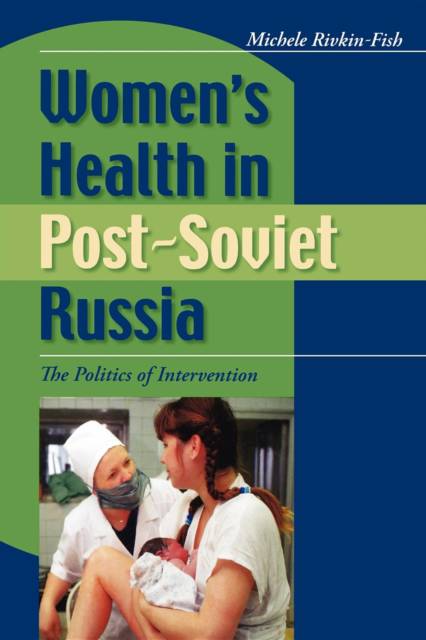
- Retrait gratuit dans votre magasin Club
- 7.000.000 titres dans notre catalogue
- Payer en toute sécurité
- Toujours un magasin près de chez vous
- Retrait gratuit dans votre magasin Club
- 7.000.0000 titres dans notre catalogue
- Payer en toute sécurité
- Toujours un magasin près de chez vous
Description
"An unparalleled study of a transforming and privatizing Russian health care system, of the promises and perils of prescriptive programs for change, that points to the areas that need change in the change-makers themselves. . . . part of a larger story about the inherent dangers of current neoliberal economic transformations of fragile post-socialist social welfare arrangements. . . . "Rivkin-Fish takes the reader into a new understanding of the fragile and tense relations between state and market transitions, and into the deep and largely silent struggle for gender and health equity in Russia." --Adriana Petryna, author of Life Exposed: Biological Citizens after Chernobyl
In the first decade after the collapse of the Soviet Union, deteriorating public health indicators such as below-replacement fertility and high rates of sexually transmitted diseases, abortions, birth traumas, and maternal mortality raised acute anxieties about Russia's future. This study documents the efforts of global and local experts, and ordinary Russian women in St. Petersburg, to explain Russia's maternal health problems and devise reforms to solve them. Examining both official health projects and informal daily practices, Michele Rivkin-Fish draws ethnographic and theoretical insights about the contested processes of interpreting and managing neo-liberal transitions in Russia and explores the challenges of bringing anthropological insights to public health interventions for women's empowerment.
Spécifications
Parties prenantes
- Auteur(s) :
- Editeur:
Contenu
- Nombre de pages :
- 272
- Langue:
- Anglais
- Collection :
Caractéristiques
- EAN:
- 9780253217677
- Date de parution :
- 04-08-05
- Format:
- Livre broché
- Format numérique:
- Trade paperback (VS)
- Dimensions :
- 156 mm x 235 mm
- Poids :
- 403 g

Les avis
Nous publions uniquement les avis qui respectent les conditions requises. Consultez nos conditions pour les avis.






